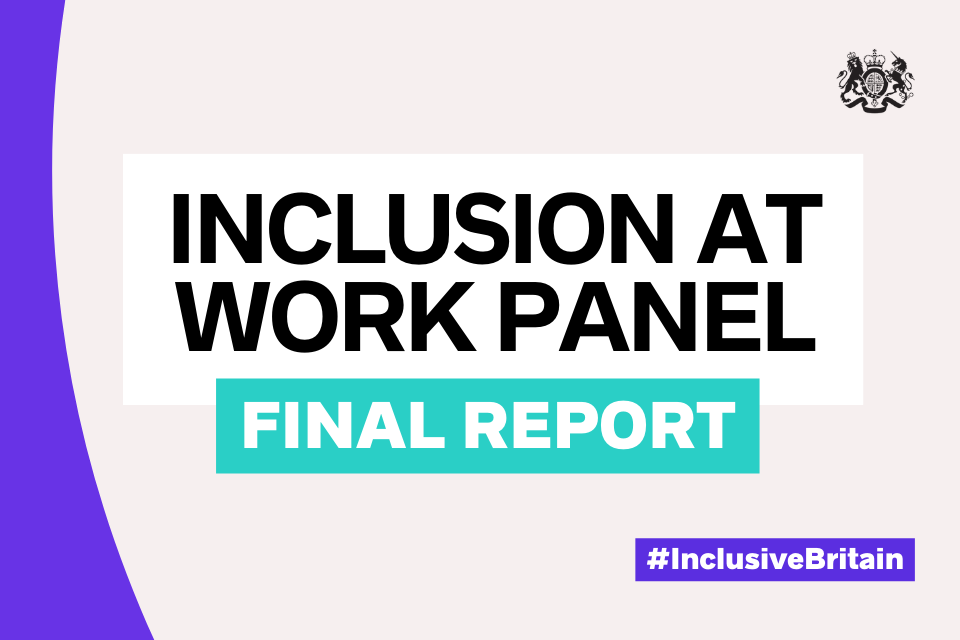- The expert panel outlines how employers can move beyond ineffective diversity and inclusion practices
- New research finds that employers are not adequately equipped to implement evidence-based EDI policies, and are resorting to ineffective recruitment practices.
- A review of the latest evidence suggests high workplace spending on EDI initiatives, but poor results and low understanding of what works and what doesn't
The committee, appointed by the Minister for Business and Trade and Minister for Women and Equalities, Kemi Badenoch MP, and made up of leaders from the private and public sectors, and advised by a leading Harvard academic, reviewed the latest evidence on how employers make decisions about diversity policies and practices. And inclusion.
The report found that many employers want to “do the right thing” but are implementing EDI initiatives without an evidence base, and many do not know the impact of these initiatives or whether they represent value for money. In an increasing number of cases, particularly regarding affirmative action and protected beliefs, the report finds that EDI interventions have proven to be counterproductive or even illegal.
Minister for Business, Trade and Minister for Women and Equalities, Kemi Badenoch, said:
“Discussions about diversity and inclusion at work are too often bogged down by performative gestures. This government wants to ensure that employers do EDI in a way that does not undermine merit and is consistent with our equality laws.
“This report from the Employment Inclusion Commission is a powerful new tool for organisations. It provides evidence of good and bad EDI practice and can enable employers to make fairer, more effective EDI decisions that represent value for money.
“I sincerely hope companies take the time to read this report so that it becomes an important step in helping them achieve more inclusive and productive workplaces.”
The report found that employers face barriers such as a lack of accessible data on successful EDI interventions and polarizing EDI debates. It also found that many employers are not using data to make EDI decisions and are misapplying equality legislation.
The report calls on employers to make better use of evidence and data when making EDI decisions to increase equity and opportunity and to avoid EDI initiatives that alienate certain groups, cause division, and have no impact.
In order to continue to lead on the global stage, it is essential that British companies tap into the best British talent, wherever they find it.
Companies routinely express their desire to find, hire, retain and promote the best talent, while also advocating an evidence-backed “how to” to make this work in real, practical terms.
Committee Chair Pamela Dow, Chief Operating Officer of Civic Future, said:
“It has been an honor to work with these expert colleagues, united to achieve the goal of equity and belonging in the workplace. Our goal was to support leaders in all sectors to spend time and money well.
“The insights from our broad discussions show how we can build a useful evidence base, track data, improve trust and reduce burdens, for organizations across the UK.”
LinkedIn data for 2020 found that the UK employs nearly twice as many EDI workers as any other country; A CIPD survey from 2022 found that only 25% of employers said they consult data before planning new inclusion and diversity activity, and 25% said most of their EDI work is reactive – citing social and political events.
The review recommends that the government can best support organizations by providing the tools to evaluate the strength of evidence and data on what works. This allows leaders and managers to choose practices with proven impact, and to stop spending time and money on frivolous or counterproductive initiatives. The review also recommends that the government can also help employers better understand their legal duties in light of recent rulings.
The Government is considering introducing a presumption against external EDI spending and increasing ministerial scrutiny of EDI spending, while streamlining EDI and HR training processes, with the aim of capturing value for taxpayers. The Government notes this report and will draw on the relevant findings as part of our own review.
Notes:
The report can be viewed here
The purpose of this report is to enable organizations to put evidence at the heart of decisions about electronic data interchange. It calls on organizations to be able to demonstrate through data that their EDI policies and practices genuinely increase diversity of thought and experience, enhance opportunity and belonging, and represent value for money.
The review was based on academic research, business surveys, and case studies on good and bad electronic data interchange practices.
Through its review of the latest evidence and data, the committee developed a framework for employers that includes five criteria for success:
- Collect evidence systematically and comprehensively
- Review interventions and processes regularly
- Putting evidence into practice
- – Widening diversity of thought and experience
- – Restore the importance of clear performance standards, high-quality professional training, and excellent management
Committee members
- Pamela Dow (President), Chief Operating Officer, Civic Future
- Barry Ginley, CEO of Tamstone Consulting, specializes in disability and inclusion
- Amma O'Cansey, UK Head of Diversity and Inclusion at BNP Paribas
- Ashley Ramrachia, Founder and CEO of the Academy
- Emer Timmons, Co-Chair of Leaders as Change Agents
- Nick Walker, Program Director, Government Skills and Curriculum Unit
- Marcus White, founder of Zyna Search
- Dennis Woolf MBE, Co-Chair of Leaders as Change Agents
Committee advisor
- Professor Iris Pont is Professor of Business and Government at Harvard Kennedy School
Matthew Percival, Director of the Future of Work and Skills at the CBI, said:
“Companies invest in diversity and inclusion because they recognize its potential to support company performance and growth. They want their investments to have the biggest positive impact possible, so they will welcome the prospect of an improved evidence base that can help them make informed choices.
The Work Inclusion Commission was a commitment in the landmark UK Comprehensive Action Plan. The government's landmark comprehensive strategy – led by the Minister of Women and Equality – identified 74 steps the government will take to address unfair disparities, promote equal opportunities, and encourage ambition.
Last April, Kemi Badenoch announced that we had completed 32 actions – including publishing the first-ever guidance to help employers measure racial pay gaps in the workforce in a rigorous way – and would publish a final progress update report on the actions remaining in the jump.

“Alcohol buff. Troublemaker. Introvert. Student. Social media lover. Web ninja. Bacon fan. Reader.”







More Stories
Pun: What is the funniest brand name in the UK?
frap | An American company buys the Crans Montana ski resort
“A ban would destroy seven million businesses” » Leadersnet